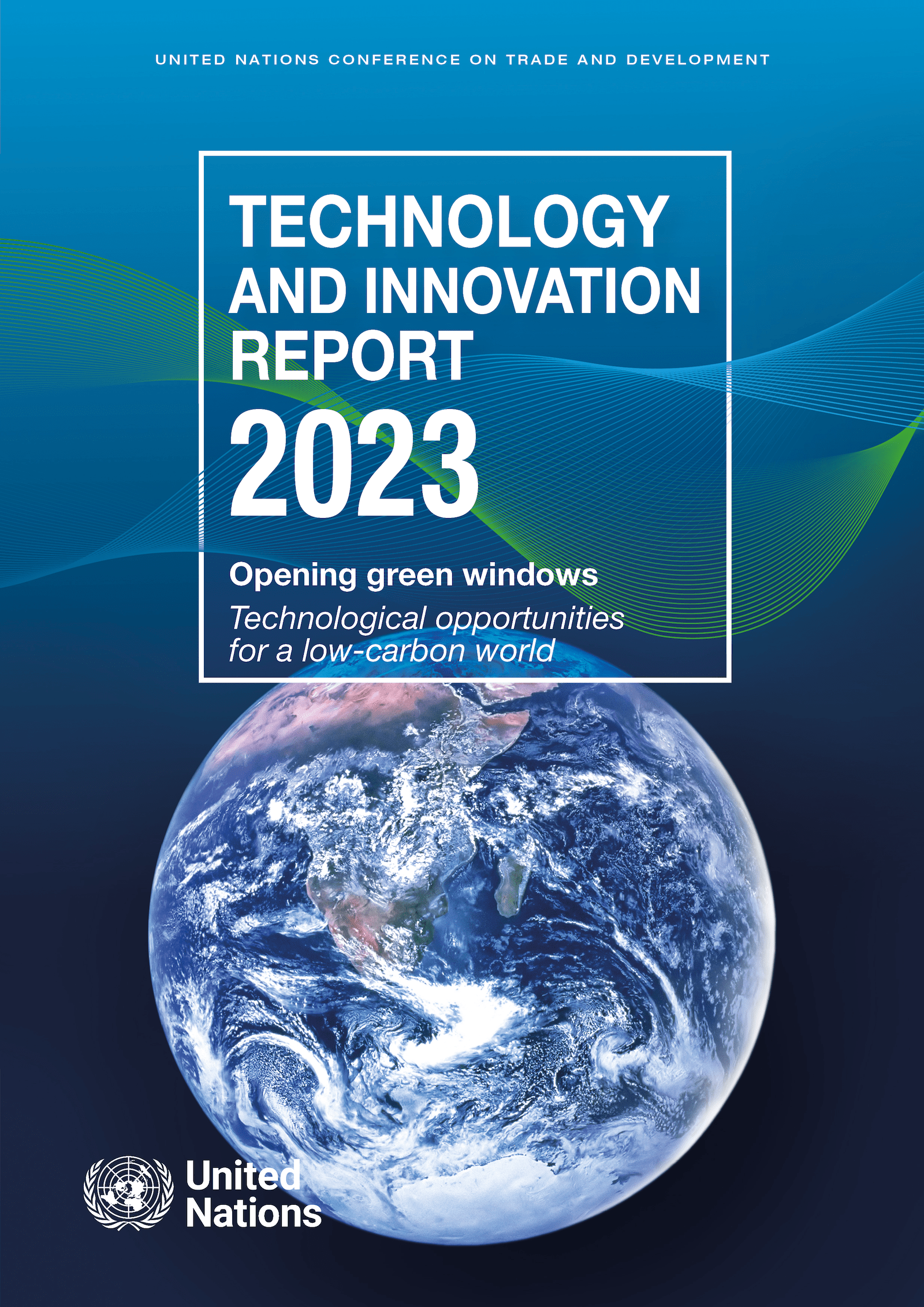UNCTAD (2023) The Technology and Innovation Report 2023. Opening Green Windows: Technological opportunities for a low-carbon world OVERVIEW # 23 p.
The report provides several recommendations for African countries to leverage technology and innovation to achieve a low-carbon economy. Some of the main recommendations are:
This report highlights the opportunities that green innovation – goods and services with smaller carbon footprints – offer developing countries to spur economic growth and enhance technological capacities.
The report analyses the market size of 17 green and frontier technologies, such as artificial intelligence, the Internet of Things and electric vehicles, and their potential to create jobs.
Now is the time for developing countries to capture more of the value being created in this green tech revolution – and use it to grow their economies, make them more resilient to shocks and reduce inequalities.
UNCTAD calls on their governments and business communities to invest in more complex and greener sectors, boost technical skills and scale up investments in the technology infrastructure needed to grow green industries.
To support this evolution, the report urges the international community to make global trade rules more supportive of emerging green industries in developing economies and reform intellectual property rights to facilitate technology transfer to these countries.
The report analyses the market size of 17 green and frontier technologies, such as artificial intelligence, the Internet of Things and electric vehicles, and their potential to create jobs.
Now is the time for developing countries to capture more of the value being created in this green tech revolution – and use it to grow their economies, make them more resilient to shocks and reduce inequalities.
UNCTAD calls on their governments and business communities to invest in more complex and greener sectors, boost technical skills and scale up investments in the technology infrastructure needed to grow green industries.
To support this evolution, the report urges the international community to make global trade rules more supportive of emerging green industries in developing economies and reform intellectual property rights to facilitate technology transfer to these countries.
The report provides several recommendations for African countries to leverage technology and innovation to achieve a low-carbon economy. Some of the main recommendations are:
- Building innovation capacity: African countries should prioritize building their innovation capacity to facilitate the development and diffusion of low-carbon technologies. This includes investing in research and development, building partnerships between industry and academia, and supporting technology transfer.
- Strengthening policy frameworks: African countries should strengthen their policy frameworks to incentivize the use of low-carbon technologies and promote sustainable consumption and production. This includes promoting green procurement policies, implementing carbon pricing mechanisms, and creating regulatory frameworks that encourage the adoption of low-carbon technologies.
- Mobilizing finance: African countries should mobilize finance to support the development and diffusion of low-carbon technologies. This can be achieved through public and private sector financing, international development assistance, and innovative financing mechanisms such as green bonds and impact investment.
- Addressing technology gaps: African countries should prioritize addressing technology gaps by building local innovation capacity and facilitating access to international markets for low-carbon technologies. This includes promoting technology transfer and building partnerships with international organizations and developed countries.
- Promoting sustainable agriculture: African countries should promote sustainable agriculture practices to reduce the carbon footprint of agriculture and promote food security. This includes promoting climate-smart agriculture practices, such as conservation agriculture and agroforestry, and investing in sustainable irrigation systems.
Background documents:
- The Green and Digital Transition in Manufacturing Global Value Chains in Latecomer Countries
- Green windows of opportunity in the global south
- Assessing Greener Economic Diversification Trajectories
- The Interlinks Between the Economic Complexity and Carbon Footprint
- The sustainability transition requires extended and differentiated North-South Cooperation for Innovation
- 10/03/2023 - Going Green: How Technology Offers Development and Climate Benefits
- 16/03/2023 - UNCTAD calls for coherent policy action to enable developing countries to benefit from green technologies


No comments:
Post a Comment